Ackee and Saltfish, Jamaica’s national dish, is a flavorful and iconic recipe that has delighted taste buds across the globe. While its roots are deeply entrenched in Jamaican culture, this dish has seen numerous variations and adaptations as it traveled through different regions.
This article delves into these diverse variations of Ackee and Saltfish across regions, exploring regional preferences, recipe modifications, and innovative twists that make this dish a versatile culinary delight.

Ackee and Saltfish with Bell Peppers
Regional Preferences
Ackee and Saltfish with bell peppers is a colorful and vibrant take on the classic dish. In Jamaica, the dish typically includes the salted cod cooked with boiled ackee, onions, tomatoes, and spices.
However, in some regions, bell peppers are added to enhance the flavor and provide a crunchy texture. The sweetness of bell peppers complements the savory saltfish and the mild, buttery ackee, creating a harmonious balance of flavors.

In the United States, particularly in areas with a high Caribbean population, this variation is quite popular. It reflects the blending of Caribbean and American culinary traditions, where bell peppers are a common ingredient. The dish becomes a feast for the eyes with the addition of red, green, and yellow bell peppers, making it as visually appealing as it is delicious.
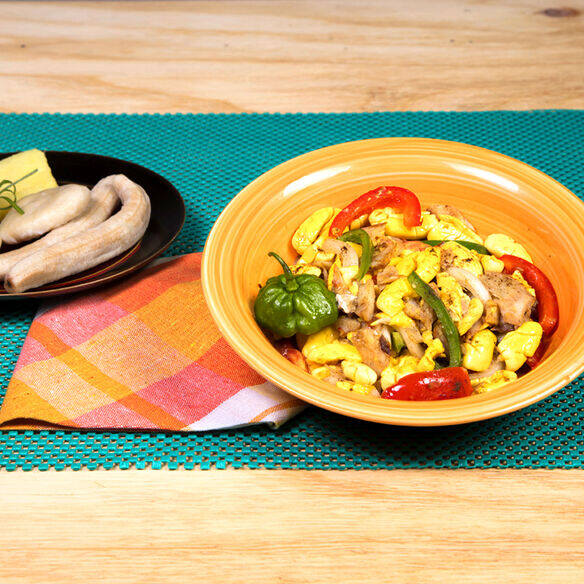
Recipe Modifications
Adding bell peppers is just one way to modify the traditional Ackee and Saltfish recipe. Other modifications include using different types of onions like red onions for a slightly sweeter taste or incorporating herbs such as thyme and parsley for an added layer of flavor.
Some cooks prefer to add a bit of hot pepper, such as Scotch bonnet, to give the dish a spicy kick. These modifications allow cooks to personalize the dish according to their taste preferences while still preserving its core essence.
Using Different Types of Fish
Salted Cod Alternatives
Traditionally, Ackee and Saltfish is made with salted cod, but as the dish has spread across regions, different types of fish have been used as alternatives. Some regions prefer using fresh fish, such as snapper or mackerel, to give a different texture and taste to the dish. These alternatives can be less salty and more tender, offering a new experience while still maintaining the fundamental flavors of the dish.
In areas where salted cod is not readily available or is expensive, substitutes like salted pollock or haddock are used. These alternatives provide a similar saltiness and texture, ensuring that the dish remains authentic to its roots.

Flavor Profiles
Changing the type of fish used in Ackee and Saltfish inevitably alters the flavor profile of the dish. Salted cod brings a distinctive briny and slightly chewy texture that pairs well with the soft and creamy ackee.
On the other hand, using fresh fish like snapper gives a lighter, more delicate flavor. Mackerel, being an oily fish, imparts a richer and more robust taste. These variations cater to different palates and regional ingredient availability, showcasing the adaptability of this beloved dish.

Vegetarian and Vegan Versions
Ackee and Tofu

For those who prefer a vegetarian or vegan diet, Ackee and Tofu is an excellent alternative. Tofu, with its neutral taste and firm texture, absorbs the flavors of the seasonings and complements the ackee well.
This version is particularly popular in health-conscious communities and among those who seek to enjoy traditional flavors without animal products. The tofu is often marinated and then sautéed with onions, bell peppers, tomatoes, and spices to create a satisfying and nutritious meal.
Ackee and Vegetables
Another vegetarian and vegan-friendly variation is Ackee and Vegetables. In this version, the ackee is combined with a variety of vegetables such as bell peppers, tomatoes, spinach, and mushrooms. The vegetables not only add a vibrant array of colors but also contribute different textures and flavors, making the dish more wholesome and fulfilling.
This version is particularly popular among those who prefer plant-based diets but still want to enjoy the unique taste of ackee.

Regional Twists and Unique Ingredients
Caribbean Variations
Across the Caribbean, different islands have their own unique takes on Ackee and Saltfish. In Trinidad and Tobago, for instance, the dish may be served with a side of roti or fried bake, adding a new dimension to the meal.
In the Bahamas, a variation known as “Bahamian Boil Fish” includes boiled fish with vegetables, often served with a generous helping of grits. Each island brings its own cultural influences and local ingredients to the dish, enriching its diversity and appeal.

Modern Twists
Modern chefs and home cooks alike have taken creative liberties with Ackee and Saltfish, experimenting with unique ingredients and presentation styles. Some innovative twists include adding coconut milk for a creamy texture, using quinoa or couscous instead of traditional rice or breadfruit, and incorporating exotic spices like cumin or curry powder. These modern variations not only keep the dish relevant in contemporary cuisine but also introduce it to new audiences who may not be familiar with its traditional roots.
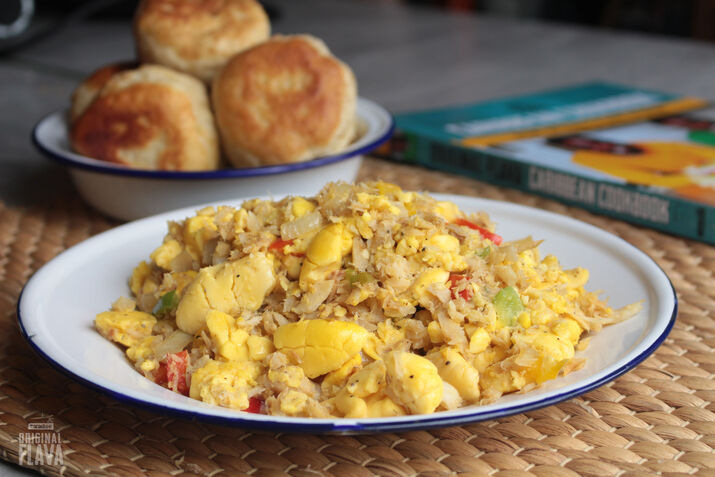
FAQs
Conclusion
Ackee and Saltfish is a versatile and beloved dish that has adapted to various regional tastes and dietary preferences. From the inclusion of bell peppers to the use of different types of fish and the creation of vegetarian versions, this dish continues to evolve while maintaining its traditional essence.
Exploring the variations of Ackee and Saltfish across regions reveals a rich tapestry of flavors and ingredients, showcasing the dish’s ability to transcend cultural and culinary boundaries.
Disclosure: Our blog contains affiliate links to products. We may receive a commission for purchases made through these links. However, this does not impact our reviews and comparisons. We try our best to keep things fair and balanced, in order to help you make the best choice for you.


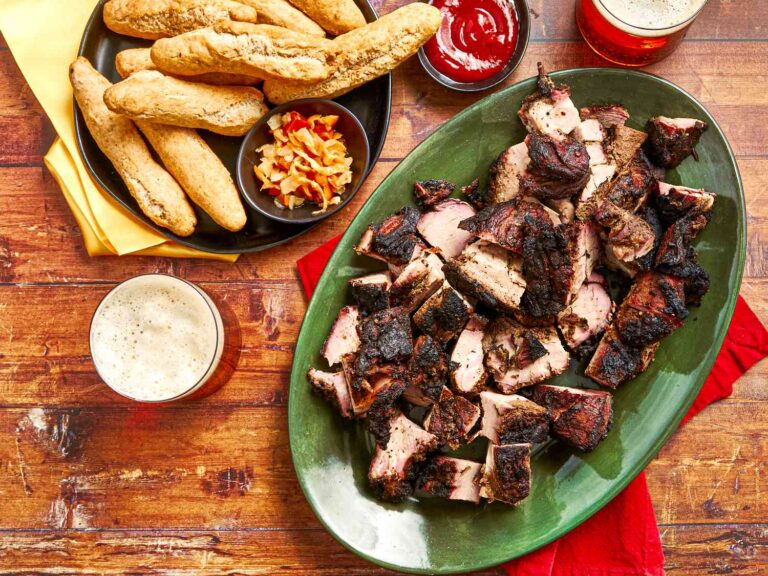
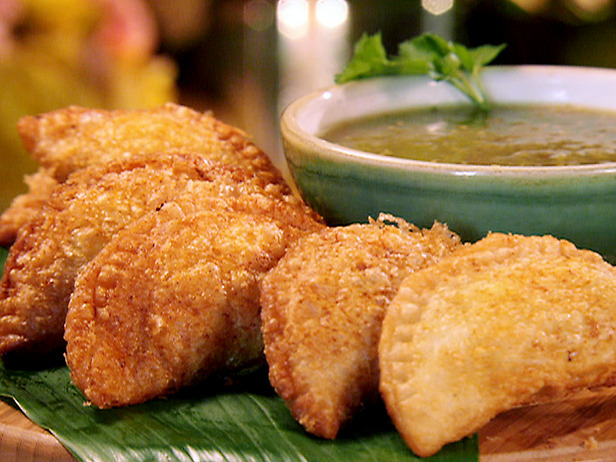
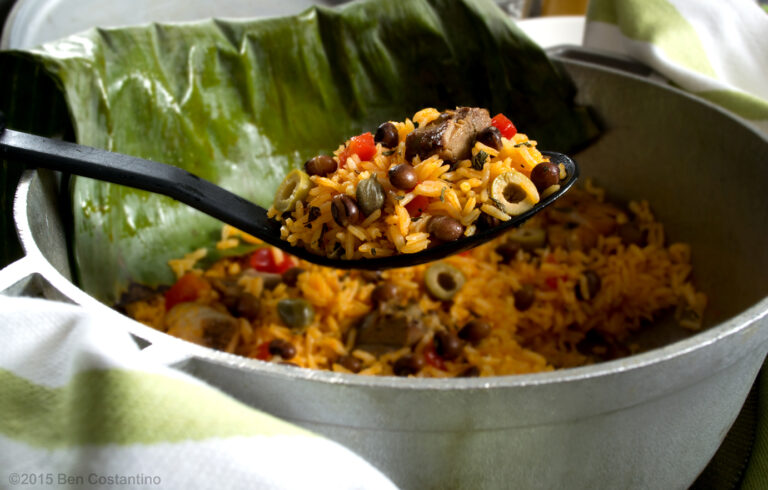
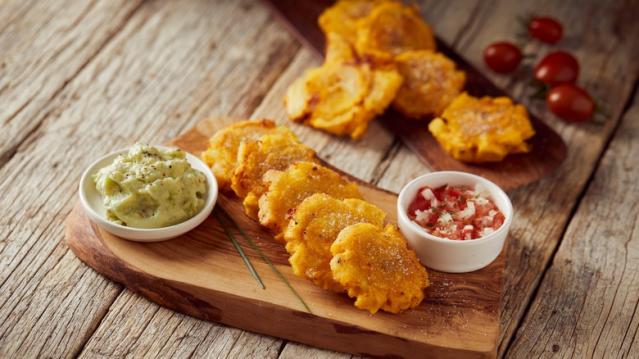
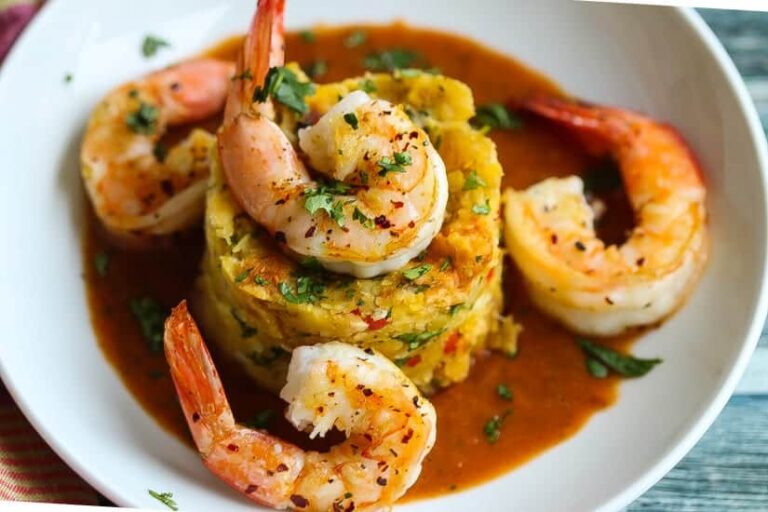

One Comment